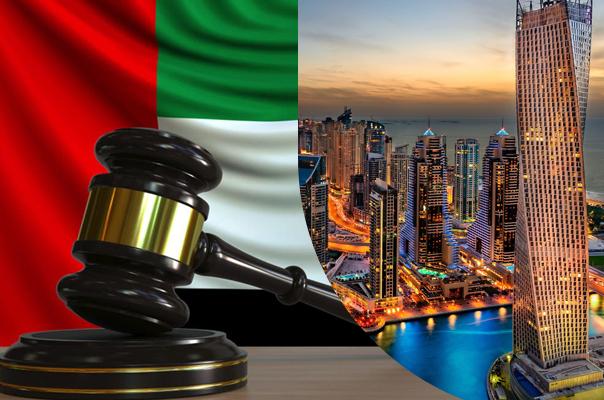The main domestic regulations governing insolvency and restructuring matters in UAE's leading financial hub, Dubai International Financial Center (DIFC), comprise the DIFC Insolvency Law. It is supplemented by the principles of the common law and other legislation, particularly the UAE Corporate Bankruptcy Law. The DIFC Insolvency Law is applicable to all directors of insolvent businesses in the free zone. If a business leaves the DIFC, the legislation will cease to be applicable unless there's an agreement by relevant parties to the contrary.
The DIFC Insolvency Law which increases the efficiency of cross border insolvency, discharge, and restructuring procedures has been enacted on the 30th of May 2019. The insolvency regime of the DIFC has been regarded as among the best across the globe. The DIFC regulatory body is taking action in order to make sure return of funds to creditors is quicker. The different concepts introduced by the DIFC's insolvency legislation sets out procedures for company insolvency, and they are as follows:
- Voluntary arrangement
A voluntary filing of company dissolution is self-imposed with the company shareholders all approving the voluntary arrangement. A voluntary arrangement happens as soon as the leadership of a company in DIFC decides that the business has no more reason for it to continue its operations. It's not ordered by the local court or made compulsory.
- When the company directors wish to propose for a voluntary arrangement, a nominee shall be appointed. The nominee must have a proposal for voluntary arrangement containing crucial matters including the following:
-
Estimate of company assets' value
-
Extent to which assets of the company are secured in the favor of the creditors of the company
-
Extent to which the company's assets are going to be excluded with the voluntary arrangement
-
The particulars of property that are other than the assets of the business itself (property proposed to be added in the arrangement, terms and source of property on which it's to be available for inclusion)
-
Nature and amount of company liabilities, as well as the manner for their proposed postponement, modification or otherwise handled through a separate arrangement
-
Proposed duration for the voluntary arrangement
-
Guarantees given of the debts of the company by other persons and if the guarantors are connected to the company
-
Proposed dates of the distributions to the creditors with the estimates of the amounts that belong to them
-
How it's proposed to handle claims of any entity who hasn't consented to the voluntary arrangement
-
Amount proposed as payment to the nominee from expenses and way of remuneration
-
Manner proposed for the remuneration of the supervisor for the voluntary arrangement and for expenses defrayed
-
Manner in which company funds are held for payment to creditors
-
Manner in which company operations will be conducted throughout the duration of the voluntary arrangement
-
Details of further credit facilities and how debts will be paid
-
Functions to be performed by the voluntary arrangement's supervisor
-
Name, contact information, address, and the qualifications of the person who is proposed to act as the supervisor (insolvency practitioner) of the arrangement, and confirmation that he/she is qualified in acting as a supervisor
-
Whether or not it's likely for other proceedings to take place in several other jurisdictions
-
Company directors are given seven days following the provision of the proposal to the nominee to deliver a statement of affairs of the business. A company's state of affairs has to be updated no earlier than 2 weeks prior to the date of giving notice by the appointed nominee. The statement has to be certified as accurate and to be the best of belief and knowledge of the company directors.
- Rehabilitation Plan
The DIFC insolvency regime also introduced the option of rehabilitation for a debtor when the company's shareholders and creditors reach an agreement as reasonable likelihood exists for the company to not be able to pay its debts. The directors of the company are to notify the local court in writing regarding the intention to deliver a proposal to creditors under the rehabilitation regime.
- The rehabilitation will allow all creditors to vote regarding a proposed rehabilitation plan with a view in restructuring the business of the debtor. The benefits of the rehabilitation plan include the following:
-
Protections against termination of contracts with respect to insolvency clauses, as well as other terms
-
Automatic stay of one hundred twenty days starting from the date company directors have notified local court of intention to propose the rehabilitation plan
-
The cram-down mechanics, the popular inclusion to other insolvency regimes which allow local court to impose the rehabilitation plan on the dissenting minority of company creditors notwithstanding lack of consent of creditors to the plan
-

- Moratorium
An insolvent business seeking moratorium is due to a temporary financial hardship and it wants to be given time in resolving related issues. In DIFC insolvency law, moratoriums are considered as legally mandated hiatus with debt collection from company creditors.
The proposal to acquire a moratorium for a company should contain explanations by creditors for why they think it's going to benefit company creditors. A moratorium proposal has to be accompanied with documents which directors believe are relevant to their claim. The proposal for moratorium and a voluntary arrangement can be a single document.
If the court grants a moratorium application, then the company-appointed nominee shall publish the moratorium's coming into force in an approved publication.
A company is not eligible to obtain a moratorium if it's an authorized person, and:
-
it accepts deposits
-
it carries out or effects contracts of insurance
-
holds investment entities or investments for their account holders
-
it holds money claims or money
Note: you will need the help of an insolvency practitioner in Dubai for legal representation. You would want the most experienced and knowledgeable bankruptcy lawyers in Dubai UAE like HHS Lawyers and not just any general practitioner. Your bankruptcy attorney will help you understand how you can utilize the insolvency regime of DIFC in protecting your company assets and the best interests of company stakeholders.
This article does not necessarily reflect the opinions of the editors or management of EconoTimes



 Amazon Stock Rebounds After Earnings as $200B Capex Plan Sparks AI Spending Debate
Amazon Stock Rebounds After Earnings as $200B Capex Plan Sparks AI Spending Debate  FDA Targets Hims & Hers Over $49 Weight-Loss Pill, Raising Legal and Safety Concerns
FDA Targets Hims & Hers Over $49 Weight-Loss Pill, Raising Legal and Safety Concerns  Rio Tinto Shares Hit Record High After Ending Glencore Merger Talks
Rio Tinto Shares Hit Record High After Ending Glencore Merger Talks  OpenAI Expands Enterprise AI Strategy With Major Hiring Push Ahead of New Business Offering
OpenAI Expands Enterprise AI Strategy With Major Hiring Push Ahead of New Business Offering  Prudential Financial Reports Higher Q4 Profit on Strong Underwriting and Investment Gains
Prudential Financial Reports Higher Q4 Profit on Strong Underwriting and Investment Gains  Toyota’s Surprise CEO Change Signals Strategic Shift Amid Global Auto Turmoil
Toyota’s Surprise CEO Change Signals Strategic Shift Amid Global Auto Turmoil  TSMC Eyes 3nm Chip Production in Japan with $17 Billion Kumamoto Investment
TSMC Eyes 3nm Chip Production in Japan with $17 Billion Kumamoto Investment  Instagram Outage Disrupts Thousands of U.S. Users
Instagram Outage Disrupts Thousands of U.S. Users  Tencent Shares Slide After WeChat Restricts YuanBao AI Promotional Links
Tencent Shares Slide After WeChat Restricts YuanBao AI Promotional Links  Uber Ordered to Pay $8.5 Million in Bellwether Sexual Assault Lawsuit
Uber Ordered to Pay $8.5 Million in Bellwether Sexual Assault Lawsuit  Washington Post Publisher Will Lewis Steps Down After Layoffs
Washington Post Publisher Will Lewis Steps Down After Layoffs  Ford and Geely Explore Strategic Manufacturing Partnership in Europe
Ford and Geely Explore Strategic Manufacturing Partnership in Europe  Trump Backs Nexstar–Tegna Merger Amid Shifting U.S. Media Landscape
Trump Backs Nexstar–Tegna Merger Amid Shifting U.S. Media Landscape  Sony Q3 Profit Jumps on Gaming and Image Sensors, Full-Year Outlook Raised
Sony Q3 Profit Jumps on Gaming and Image Sensors, Full-Year Outlook Raised  Nasdaq Proposes Fast-Track Rule to Accelerate Index Inclusion for Major New Listings
Nasdaq Proposes Fast-Track Rule to Accelerate Index Inclusion for Major New Listings  Once Upon a Farm Raises Nearly $198 Million in IPO, Valued at Over $724 Million
Once Upon a Farm Raises Nearly $198 Million in IPO, Valued at Over $724 Million  Weight-Loss Drug Ads Take Over the Super Bowl as Pharma Embraces Direct-to-Consumer Marketing
Weight-Loss Drug Ads Take Over the Super Bowl as Pharma Embraces Direct-to-Consumer Marketing 































